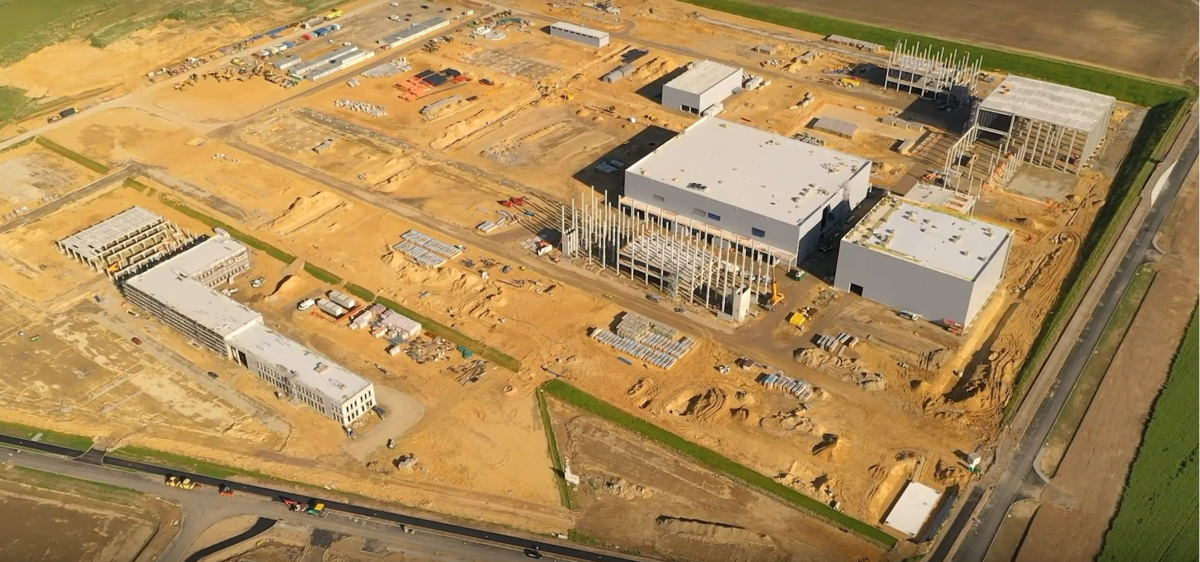From pv magazine Global.
Vulcan Energy Resources, a materials company that is ramping up plans for zero-carbon lithium production in Germany, has signed a long-term supply agreement to supply Umicore with lithium hydroxide for its production of cathode materials for lithium-ion batteries.
The agreement will see Vulcan supply between 28,000 and 42,000 tons of lithium hydroxide to the Belgian materials giant over a five-year period beginning from 2025, with the option to extend for another five years with mutual agreement. This will represent approximately 20% of Vulcan’s planned output for the period. Pricing will be based on market prices for lithium hydroxide on a take or pay basis, and the agreement is still dependent on the securing of project finance, construction and commissioning of the plants and full product qualification for Vulcan’s zero carbon lithium project.
“Umicore, a leading cathode manufacturer and the first in Europe, will be a valuable offtake partner for Vulcan, as a direct consumer of Vulcan’s lithium hydroxide products. With our recent announcements of agreements with LG Energy Solution and Renault Group, we now have a diversified mix of offtakers from the cathode, battery and automotive sectors, with further agreements expected in the near term,” said Francis Wedin, managing director at Vulcan Energy Resources. “We look forward to a long and fruitful cooperation with Umicore as we progress our Zero carbon lithium project.”
Green battery plans
Vulcan is working on scaling up its zero carbon lithium project, which aims to produce both geothermal energy and battery grade lithium hydroxide by pumping geothermal brine from deep in the earth at a site in Germany’s Upper Rhine Valley. Once the heated brine has been used to produce energy, it is processed into high purity lithium hydroxide monohydrate at another facility.
The company has demonstrated production of LHM exceeding minimum quality specifications for the battery industry, and last month it secured a site outside of Frankfurt, Germany for its planned commercial processing facility, where it hopes to begin large-scale production sometime in 2024.
Umicore, meanwhile, is expecting to begin production of cathode materials at its new facility in Nysa, Poland by the end of this year. It is calling the plant the first CO2 neutral factory for cathode materials in Europe. The plant will supply battery cell and electric vehicle manufacturers, and is powered by 100% renewable energy from a nearby wind farm, under a corporate PPA with Engie. Umicore has also signed a supply agreement with Chinese company Ganfeng Lithium Co. Ltd to supply it with Australian-sourced lithium as of 2022, and is expected to cover a significant portion of Umicore’s lithium requirements in Asia.
“In light of the accelerating transition to electromobility it is crucial to secure a reliable supply of critical raw materials, that is also environmentally and socially responsible,” added Umicore CEO Mathias Miedreich. “These long-term supply agreements mark another important step in Umicore’s sustainable procurement strategy and demonstrate our strong commitment to support the growth of our global customers through the creation of sustainable and regional battery materials value chains.”
This content is protected by copyright and may not be reused. If you want to cooperate with us and would like to reuse some of our content, please contact: editors@pv-magazine.com.









By submitting this form you agree to pv magazine using your data for the purposes of publishing your comment.
Your personal data will only be disclosed or otherwise transmitted to third parties for the purposes of spam filtering or if this is necessary for technical maintenance of the website. Any other transfer to third parties will not take place unless this is justified on the basis of applicable data protection regulations or if pv magazine is legally obliged to do so.
You may revoke this consent at any time with effect for the future, in which case your personal data will be deleted immediately. Otherwise, your data will be deleted if pv magazine has processed your request or the purpose of data storage is fulfilled.
Further information on data privacy can be found in our Data Protection Policy.